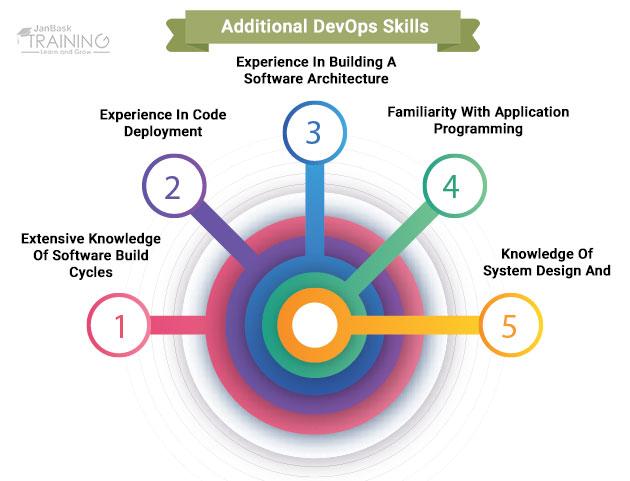Top Skills & Roles of a DevOps Engineer in Modern Education Systems
As education technology (EdTech) transforms universities, colleges, and schools around the globe, the demand for skilled DevOps Engineers in education systems is on the rise. Whether you’re an experienced tech professional seeking a change or a job seeker passionate about education, understanding the top skills and roles of a DevOps Engineer in modern learning environments can help you secure a rewarding position in this growing field. in this article, we’ll explore what it takes to excel as a DevOps Engineer within educational institutions, outline the responsibilities, highlight essential skills, and offer practical tips to launch your career in education technology.
Why DevOps Matters in Modern Education Systems
Technology is at the heart of today’s educational experience, from supporting remote learning platforms and digital assessments to ensuring the smooth operation of university websites and internal systems. DevOps Engineers act as the backbone of these services, ensuring high availability, security, scalability, and efficiency.The implementation of DevOps practices in schools,colleges,and universities helps:
- Automate software deployment for learning management systems (LMS)
- Ensure continuous integration and delivery for EdTech applications
- Maintain robust cloud infrastructure to support online learning
- Facilitate seamless collaboration between development and IT teams
- Enhance security and compliance for sensitive student data
Key Roles of a DevOps Engineer in Education technology
In modern education systems,the role of a DevOps Engineer goes beyond conventional IT support. Here’s what you can expect if you pursue this exciting career:
1. Infrastructure Automation & Management
- Design, build, and manage scalable cloud or on-premise environments for educational applications
- Automate server provisioning, configuration, and deployment processes
- Support virtual classrooms and online examination platforms
2. Continuous Integration and Deployment (CI/CD)
- Set up CI/CD pipelines to enable smooth delivery and updates of EdTech software
- Test, integrate, and deploy code efficiently, minimizing downtime and errors
- Implement version control best practices for collaborative development
3. Monitoring, Maintenance, and Performance Tuning
- Monitor applications, servers, and networks to detect and resolve issues proactively
- Optimize system performance for large numbers of students and staff
- Generate usage reports to assist in decision-making and planning
4. Security & Compliance
- Manage access controls, encryption, and secure data backups
- Stay up-to-date with regulatory requirements for student and staff data protection
- Ensure incident response and disaster recovery strategies are in place
5. Collaboration and Interaction
- Act as a bridge between software development teams and system operations
- Work closely with educators, administrators, and IT support
- Provide technical guidance, training, and documentation to staff
Essential Skills for DevOps Engineers in Academia
to succeed as a DevOps Engineer in education technology, you’ll need a blend of technical expertise, problem-solving abilities, and collaboration skills. Here are the top competencies that employers look for in EdTech DevOps roles:
Technical Skills
- cloud Computing Platforms: Experience with AWS,Azure,or Google cloud in educational contexts
- Scripting & Automation: Proficiency in Python,Bash,PowerShell,or similar scripting languages
- Containerization: Knowledge of Docker,Kubernetes,and container orchestration for deploying scalable applications
- source Control: Familiarity with Git and source code management best practices
- CI/CD Tools: Hands-on with Jenkins,GitLab CI,or GitHub Actions
- Monitoring & Logging: Experience using tools like Prometheus,Grafana,and ELK stack
- Configuration Management: Understanding of Ansible,Puppet,or Chef for automated setups
Soft Skills
- Collaboration: Ability to work effectively with multidisciplinary teams in education
- Communication: Clear verbal and written skills for training staff and preparing documentation
- Problem-Solving: Analytical mindset for addressing technical challenges and system outages
- Adaptability: Eagerness to learn new tools and respond to evolving educational needs
- Project Management: Organizational skills for managing multiple projects or initiatives simultaneously
Benefits of a DevOps Career in Education Technology
Working as a DevOps Engineer in education brings unique rewards and opportunities:
- Impactful Work: Directly enhance digital learning experiences for students and educators
- Exposure to Latest Technologies: Operate at the cutting edge of cloud,automation,and security
- Collaborative Environment: Work with passionate teams dedicated to improving education
- Job Security: Increased reliance on digital platforms ensures steady demand for DevOps skills in universities,colleges,and schools
- Room for Growth: Opportunities to progress to lead roles or specialize in areas like security or cloud architecture
Common job Titles for DevOps Roles in Education
If you’re searching for a DevOps job in an education setting,familiarize yourself with these common job titles:
- DevOps Engineer
- Cloud Infrastructure Engineer
- Site Reliability Engineer (SRE)
- Systems Automation Engineer
- EdTech Platform Engineer
- Deployment Engineer
Practical Tips for Landing a DevOps Role in EdTech
-
Gain Relevant Experience:
- Volunteer or freelance for local schools’ technology projects
- Contribute to open-source EdTech tools or platforms
-
Build a Strong portfolio:
- Document your DevOps projects,automation scripts,or cloud deployments
- Showcase solutions you’ve implemented for education-specific challenges
-
Pursue Certifications:
- Consider AWS Certified DevOps engineer,azure DevOps Engineer,or Kubernetes certifications
-
Network in Education Technology:
- Connect with IT managers,technology coordinators,or EdTech professionals at universities and schools
- Attend industry conferences and webinars
-
Prepare for Interviews:
- Be ready to discuss how your DevOps expertise can solve real-world challenges in an educational context
- demonstrate your understanding of data security,compliance,and the unique needs of students and educators
Conclusion: Why DevOps Engineers are Essential to the Future of education Technology
Joining the field of DevOps in education technology offers you more then just a technical role—it provides the chance to make a meaningful impact on learning communities,drive digital transformation,and enjoy a future-proof career. As EdTech continues to evolve, the top skills and roles of a DevOps Engineer will remain critical to the ongoing success and innovation of universities, colleges, and schools worldwide. If you have a passion for technology and education, now is the perfect time to build your expertise and step into this rewarding and dynamic field.

